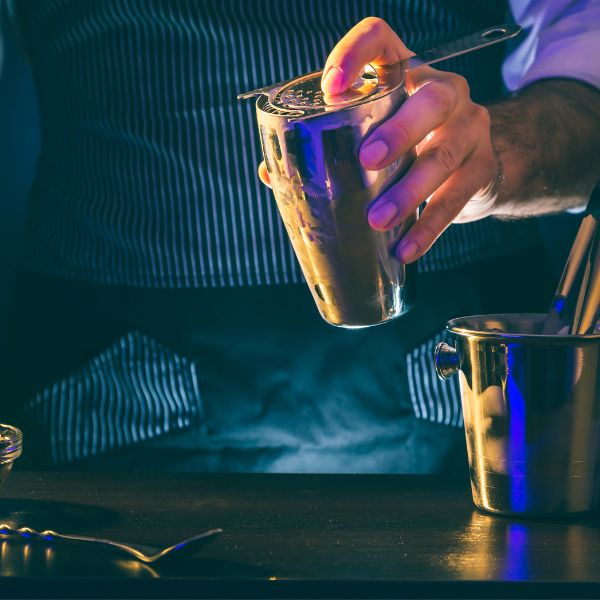Perfume layering is an art form that transforms we fragrance enthusiasts into olfactory mixologists, crafting unique scent cocktails with each spritz. Just as a skilled bartender combines spirits, mixers, and garnishes to create a signature drink, perfume lovers can blend different fragrances to develop their own aromatic masterpieces…
The process of layering fragrances is similar to mixing cocktails in several ways. First, it requires an understanding of the “ingredients” – in this case, the individual notes and accords within each perfume, and your personal preferences. Like a mixologist who knows the flavour profiles of various spirits, a fragrance enthusiast must be familiar with the characteristics of different scent families and how they interact.
When layering perfumes, the order of application is crucial, much like the sequence of adding ingredients in a cocktail. Typically, heavier or more intense fragrances are applied first, followed by lighter scents, allowing each layer to shine without being overpowered.This technique mirrors the way a bartender might layer spirits in a cocktail glass to create visually striking and flavourfully complex drinks.
The possibilities for fragrance combinations are virtually endless, just as with cocktail recipes. Perfume lovers can experiment with complementary scents, such as pairing a fruity fragrance with a deeper, oakmoss or patchouli-based fragrance to concoct a ‘Chypre’ effect. Alternatively, they might create contrast by combining different fragrance families, like adding a vanilla layer to a smoky oud for an unexpected twist.

Some fragrance houses have even embraced this trend by offering layering kits, similar to cocktail-making sets, allowing consumers to play with different scent combinations.These kits provide a perfect starting point for those new to the art of fragrance layering. But really, you can mix up your own scented cocktail using perfumes you already have. Here’s how to begin…
![]()
Moisturise, moisturise, moisturise!
Particularly in warmer climates. Nothing makes fragrance disappear more quickly than dry skin. Try using a matching body lotion or oil to your fragrance (many have matching products like shower gels as well – the more layers of the scent the better!) Aroma molecules evaporate far slower on well-hydrated skin.
Try also spraying the scent into your hair, too, so it wafts around you all day. Hair doesn’t heat up as much as skin, and will absorb the smell more deeply. Do a patch test, first, to ensure the fragrance doesn’t discolour your hair (spray on a tissue to be sure).
![]()
How to Pick Your Perfumes
Start by layering the ‘heaviest’ (often woody, gourmand or patchouli / resin rich notes being dominant), then a floral or fruity aspect, and finally a lighter, fresher scent. Stop and sniff-check between layers! You may have already found the perfect blend in two scents.
For more detailed instructions of which fragrance notes layer best (and how to add freshness, soften or add depth to an existing fragrance you have) do read our Tips & Tricks to Save Your Scent feature.
![]()
Experiment!
As with mixology, perfume layering is both a science and an art. It requires knowledge, of course – but here we mean your own sense of what suits you best, the notes you love above all others (rather than a degree in chemistry!) creativity, and most of all: a willingness to experiment. The result is a truly personalised fragrance experience that, just like a perfectly crafted cocktail, is greater than the sum of its parts…
Written by Suzy Nightingale

